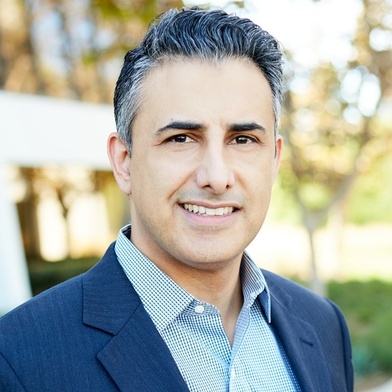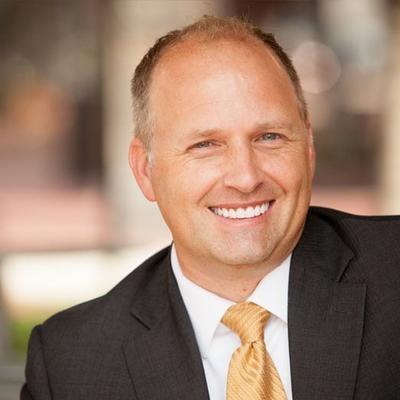Cleveland Patent Attorneys & Lawyers
How it Works

Ross Brandborg

Kanika Radhakrishnan

David Yamaguchi

Ali Shalchi

Eric Alspaugh

Nathanial Potter
.jpg)
Ari Goldstein

Nathan Lewis

Dominic Frisina

Omar Darwich
Cleveland Patent Lawyers
Why use UpCounsel to hire a Cleveland Patent Attorney?
Average experience
You always get experienced professionals and high caliber work.
Faster
Your work gets done quickly because professionals are always available.
More cost effective
We use technology to cut traditional overhead and save you thousands.
UpCounsel has been talked about in:
Legal Services Offered by Our On-Demand Cleveland Patent Attorneys
Our experienced Cleveland patent attorneys & lawyers represent individuals and businesses throughout the world with domestic and foreign patent preparation and prosecution matters. They have extensive experience handling applications from nearly every sector of technology, including biotechnology, computer hardware and software, communication networks, internet systems and methods, automotive, medical equipment, construction technology, consumer electronics, and clean technology research and development.
Our patent attorneys are of the most highly trained in the industry, requiring a scientific background, and passing a second level of testing known as the Patent Bar Examination. Thousands of patents are submitted to the patent office every day and a patent committee reviews each patent for its validity. The process requires that correctly drafted documentation present a clear case for the novelty of the invention, which is best made by a patent attorney with a higher education background in your industry.
Our Cleveland patent attorneys & lawyers can help you file a provisional patent, which lasts for 1-year and allows you to immediately begin using/manufacturing your invention with the confidence that your idea is protected. These types of patents are great if you think your idea will change a lot over the next year before you file a (non-provisional) patent. These patents are easier to obtain and are less expensive but you should have a patent lawyer review your provisional patent application to insure that you are meeting your objectives when you file your patent.
Improve Your Legal ROI with Affordable Patent Attorneys that service Cleveland, OH.
What Our Customers Have to Say
"UpCounsel gives me access to big-firm lawyers minus the big-firm price tag. I work with several attorneys on the platform and there are never surprises...I always receive quality legal work at competitive rates that larger firms simply cannot match."
"Every startup needs to know about UpCounsel. We found great attorneys at great prices and were able to focus our resources on improving our business instead of paying legal bills."
"Before UpCounsel it was hard for us to find the right lawyer with the right expertise for our business. UpCounsel solves those problems by being more affordable and helping us find the right lawyer in no time."
This is the most recent 20 reviews out of 24 reviews for Patents attorneys in Ohio

Assist with Other Patent Matter
"Joe was very helpful getting my patent out the door!"
Justin L
.
Xenia,
OH,
about 1 month ago

Biotech Patent Filing
"Started with provisional. She led a superb effort with demonstrated domain expertise in biotech and Ai. She will lead my non-provisional filing."
Jason E. B
.
Cincinnati,
OH,
about 2 months ago

File Provisional Patent
"Great Prior Art search for fintech Patent"
Josh J
.
Painesville,
OH,
5 months ago

Utility Patent Filing Assistance
"Kanika and her team are the most professional and hard working. Excellent work and service. Will recommend and return anytime."
Christoph M
.
Fairfield,
CA,
12 months ago

Assist with Other Patent Matter
"A helpful consultation for setting and organizing my goals. Thank you."
Dylan L
.
Columbus,
OH,
about 1 year ago

Provisional Patent
"Highly recommend Kanika and her team. They do great, prompt work!"
Katarina K
.
Cincinnati,
OH,
over 1 year ago

Assistance with Patent Search and Filing Provisional Patent
"Excellent guidance and very thorough patent search. Extremely pleased!"
Katarina K
.
Cincinnati,
OH,
over 1 year ago

Assist with Other Patent Matter
"Mario's the man. Quick & Professional."
Christopher M
.
Grove City,
OH,
over 1 year ago

Assist with Other Patent Matter
"Thank you for drawing up and submitting my provisional patent!"
Angela S
.
North Canton,
OH,
over 2 years ago

Patent Consultation
"Joel helped me understand the patent application process and successfully submitted the documents for my provisional patent. I would hire Joel and his team again."
Nicholas O
.
Dayton,
OH,
over 3 years ago

Assist with Other Patent Matter
"It was a pleasure working with Joel and his team!"
Stewart L
.
Independence,
OH,
over 3 years ago

Conduct Patent Search
"He was quite knowledgeable and answered all my questions with clarity. He didn't hesitate to repeat something if I didn't hear or understand the first time. He also got me results a lot sooner than expected. Definitely recommend!"
Toya L
.
Cleveland,
OH,
almost 6 years ago

Response to USPTO Office Action (Patent)
"Does what he says."
Garnett H
.
Toledo,
OH,
about 6 years ago

Patent Consultation
"Process was easy!"
Regina C
.
Warren,
OH,
over 6 years ago

Non-Provisional Patent
"Great experience so far!"
Regina C
.
Warren,
OH,
over 6 years ago

Conduct Patent Search
"Completed the task in a very timely manner!"
Regina C
.
Warren,
OH,
over 6 years ago

Consult on Design Patent
"Richard is very professional and fast! He has a great team working with him, and I'd highly recommend his firm to anyone."
George C
.
Dayton,
OH,
about 7 years ago

Conduct Patent Search
"Excellent communicator and exemplary knowledge of the law. Also, exceptionally reasonable pricing. Stellar service."
Garnett H
.
Toledo,
OH,
over 7 years ago

Assist with Non-Provisional Patent
"This was my first upcounsel experience and Kanika and team made it easy."
Julie F
.
Danville,
CA,
over 7 years ago

Consumer Product/Service Utility Patent Filing
"Did a great job on the task."
Mark M
.
Perrysburg,
OH,
almost 9 years ago
Related Articles
Key Takeaways
- An Information Disclosure Statement (IDS) is a crucial document required by the USPTO that ensures all relevant prior art is disclosed during a patent application.
- Failing to properly file or update an IDS can render a patent unenforceable for inequitable conduct or misrepresentation.
- IDS obligations extend to inventors, patent attorneys, and anyone substantively involved in patent prosecution.
- Timeliness is critical: Late submissions often require certifications or fees and can complicate prosecution.
- Knowing how and when to file, what constitutes material information, and the legal risks of omission helps applicants maintain enforceable rights.
...
Read MoreKey Takeaways
- Ornamental design patents protect a product’s unique visual appearance, not its function.
- A design must be non-functional, original, and applied to an article of manufacture to qualify.
- Design patents can be part of a broader IP strategy that includes copyright and trademark protection.
- Not all decorative features qualify—if a design is dictated by function, it may not be considered “ornamental.”
- Filing quickly after public disclosure is crucial, and proper drawings are essential for approval.
- Legal counsel can help navigate complex application requirements and enforce rights effectively.What Is an Ornamental Design Patent?
What Is an Ornamental Design Patent?
An ornamental design patent protects the design of a manufactured object. It is different from a utility patent. A utility patent protects the function and operation of an item. A
...
Read MoreKey Takeaways:
- A name cannot be patented but can be protected through trademark registration.
- The USPTO allows trademarks for unique and distinctive names used in commerce.
- Conducting a trademark search before applying prevents conflicts and rejection.
- Trademarks offer national prote
...
Read MoreKey Takeaways
- A utility patent example helps inventors understand the structure, scope, and requirements of both provisional and non-provisional patent applications.
- Utility patents protect how an invention works, not just how it looks—covering machines, processes, compositions of matter, and improvements.
- Examples include innovations in electronics, biotechnology, mechanics, and software, from the telephone and light bulb to genetic engineering and software algorithms.
- Using a utility patent example can clarify the required elements—such as claims, specifications, and drawings—while also highlighting common mistakes to avoid.
- Utility patents last 20 years from the fil
...
Read More